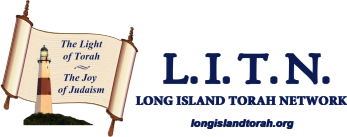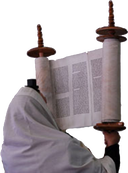Kedoshim
Kedoshim means “Holy [individuals].” “Be holy people,” commands God, “for I am holy.” The Torah commands us to live lives of purity and refinement.
The Parsha enumerates a variety of specific laws. Positive Mitzvos mentioned include:
The Parsha enumerates a variety of specific laws. Positive Mitzvos mentioned include:
- Revering parents.
- Observing the Sabbath.
- Leaving gifts for the poor when harvesting one’s field.
- Loving one’s fellow as oneself.
- Standing up and showing respect for the elderly and the wise.
- Treating converts with compassion and sensitivity.
- Judging fairly and honestly; maintaining accurate weights and measures.
- Stealing,
- swearing falsely,
- withholding laborers’ wages,
- cursing another person
- “placing a stumbling block before the blind” –misleading others, either by offering bad advice or by causing them to sin.
- Tale-bearing – sharing negative or harmful information about another person with no constructive purpose – even if the information is true.
- Standing idly by when someone is in danger.
- Secretly hating another. Articulate your grievance, commands the Torah, so the other person can address it.
- Taking revenge or bearing a grudge.
- Cross-breeding animals or crops
- Wearing a garment containing both wool and linen [“Shatnez”].
- Eating fruit from a tree within the first four years of planting. Biblically, this law only applies in the Holy Land, but Rabbinic injunction extends it elsewhere as well.
- Cutting off one’s sideburns [Peyos]; shaving one’s beard with a razor. [These laws apply only to men].
- Idolatry, witchcraft and divination.
- Incest and adultery.


